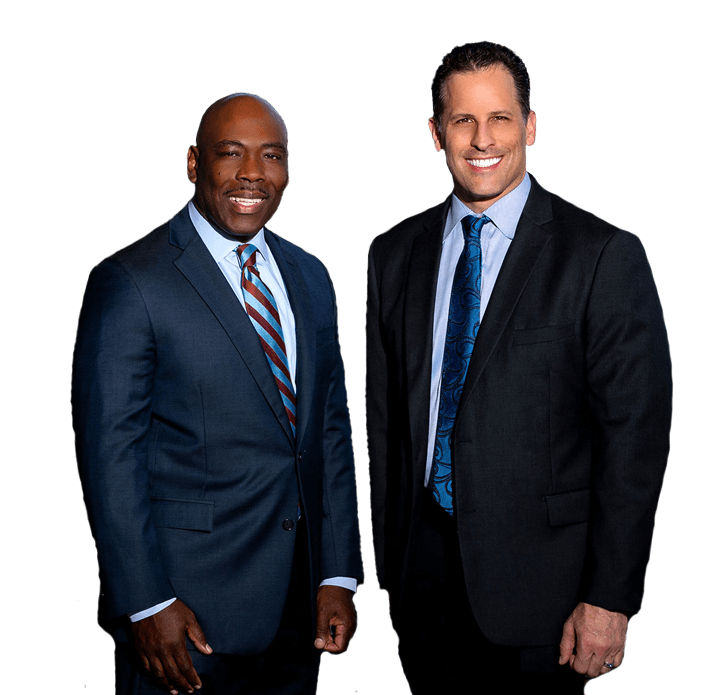Workers’ Compensation Attorney
If you are injured on the job, you may be entitled to compensation from your employer or its workers’ compensation insurance company.


The Legal Forum Radio Show – Aired 10-25-14 – Workers’ Compensation
The citizens of North Carolina go to work every day to support themselves, and their families in a variety of jobs including construction, manufacturing, shipping and receiving, distributing, health care, office work, and being employed with a county, city, or the State of North Carolina. Whether an employee lives in Charlotte, Matthews, Monroe, Gastonia, or anywhere in the foothills or mountains of North Carolina, their usual routine is the same: go to work, come home safely without getting hurt, and in the process support themselves, and their families. But, when a North Carolina resident gets hurt on the job, this routine gets interrupted, and life changes all too fast. The workers compensation attorneys at Tippens & Zurosky can help. Read our workers’ comp FAQ.
If you are hurt on the job in North Carolina, whether you work in Charlotte, or somewhere else in the state, you may be entitled to workers’ compensation benefits from your employer, or its workers’ compensation insurance company. The North Carolina Workers’ Compensation lawyers of Tippens and Zurosky can help you get these benefits. The workers’ compensation laws of North Carolina provide that if an employee is hurt on the job, an employer or their insurance company has to pay an injured worker’s medical bills, weekly checks called temporary total disability if an injury prevents a worker from working, and compensation for a permanent injury. The Workers’ Compensation laws of North Carolina can be very confusing for an injured worker. There are many types of on the job injuries that are considered workers’ compensation claims including but not limited to:
- Truck Accidents That Happens On The Job
- Motor Vehicle Accidents That Happen On The job
- Construction Site Accidents
- Lifting Accidents
- Repetitive Motion Injuries Such As Carpal Tunnel Syndrome
- Slips, Trips, and Falls That Happen On The Job
- Industrial Accidents
- Manufacturing or Plant Accidents
- Burns or Scarring that Happens on the Job
- Injuries That Occur When Your Co-employee Injures You
- Other Accidents That Happen At Work That Result In A Permanent Injury
- Workers’ Comp Third Party Claims
- Back Injuries On The Job
The attorneys of Tippens & Zurosky represent injured workers in workers’ compensation cases all over North Carolina and South Carolina. If you are involved in an on the job accident, let us help you get the compensation you deserve. Over the years, our North Carolina workers’ compensation clients have included construction workers, plant workers, machine operators, nurses, certified nursing assistants, local and long haul drivers, health care workers, city, state and county workers, electricians, heavy equipment operators, landscapers, office workers, and factory workers among many others.
If you are injured on the job in North Carolina, it is crucial that you report your injury immediately. In North Carolina, you have 30 days to report your injury to your employer in writing. This deadline may be excused if you have a reasonable excuse for not giving written notice. In North Carolina, your claim must be filed with the North Carolina Workers’ Compensation Commission within two years in order for you to receive compensation. If your claim is accepted by your employer, the employer will typically report your claim to the North Carolina Industrial Commission, the state agency that regulates workers’ compensation. However, if your employer denies your claim, or does not file it, you can file it yourself, or let the North Carolina Workers Compensation attorneys of Tippens and Zurosky help you.
What should you do if your North Carolina workers’ compensation claim is denied? If you are injured on the job in North Carolina, and your employer, or their insurance company denies your claim, call the North Carolina workers’ compensation attorneys at Tippens and Zurosky. Insurance companies employ adjusters who are trained to minimize or deny your case, and save the insurance company money. Let the North Carolina Workers Compensation attorneys of Tippens and Zurosky be your voice, and let our years of experience even the playing field.
Why Are North Carolina Workers’ Compensation Claims Denied?
- The Claim Was Reported Too Late
Employers will often deny an employees’ workers’ compensation claim by telling them that they reported it too late, which might actually only be a day, or a week after the injury happened. In North Carolina, you have 30 days to report your injury to your employer in writing. This deadline may be excused if you have a reasonable excuse for not giving your employer written notice. Sometimes an employer is just not aware of what the law is regarding reporting an injury on the job, but just as often an unethical manager, or supervisor purposely gives the injured worker wrong information so that the lost time accident is not documented as happening on their watch. Some companies tie in manager, or supervisor bonuses with the amount of lost time accidents, so the manager becomes motivated to get an injured worker’s claim denied for their own personal financial gain. Our workers’ comp attorneys can help you get the compensation you deserve.
- For a Pre-Existing Condition
We have seen many instances where an injured employee with a previously hurt back, or neck, has their claim denied because they are told their condition was “pre-existing.” Just because your employer denies your claim because you had hurt the same body part before doesn’t mean you do not have a compensable claim. North Carolina workers’ compensation laws state that you can still receive workers’ compensation benefits if a new on the job injury aggravated, exacerbated, accelerated, or made worse your previous injury. Sometimes this answer comes down to what your treating physician has to say on this issue, and it is necessary for your attorney to ask detailed, very specific questions of your doctor to figure it all out. Please call the North Carolina workers’ compensation attorneys at Tippens and Zurosky, if this has happened to you.
- The “Negligence” of the Injured Worker
North Carolina Workers’ Compensation is a no fault system, meaning that unless you tried to intentionally hurt yourself on the job, or were under the influence of drugs or alcohol when you got hurt, your claim cannot be denied by your employer for what you did, or failed to do. But unfortunately, this does not stop some employers from telling you that you are the reason you got hurt, and therefore can’t file a North Carolina workers’ compensation claim. For example, you should have seen that oil on the floor, and not slipped and fallen and broken your ankle. Sometimes in this circumstance, the injured worker is then encouraged to just file it under the company health insurance and not even report it to the workers’ compensation insurance carrier.
- Independent Contractor versus Employee
North Carolina workers’ compensation law concerning whether someone is an independent contractor, or an employee, depends on factors such as who furnishes the equipment, or tools for the work, who is in control of the work being done, who has the right to hire and fire, and the means of payment, for example hourly versus by the piece, or job. Regardless of how these factors actually apply to your job, your employer may try to deny your claim saying that you are an independent contractor not an employee, and thus “don’t work for them.” Employers do this to avoid paying workers’ compensation benefits which are just for employees. Please call the North Carolina workers’ compensation attorneys at Tippens and Zurosky, to see if your job factors prove that you were an employee, not an independent contractor.
- Injuries Off Site or Off the Clock
North Carolina workers’ compensation laws define work-related injuries very broadly, and just because you got hurt off site, or after hours doesn’t mean that you don’t have a valid workers’ compensation claim. Employers may deny your workers’ compensation claim stating because you got hurt away from the actual work site, or after the normal working hours that your injury is not covered by workers’ compensation. These situations are very fact specific so call the North Carolina workers’ compensation attorneys at Tippens and Zurosky, to see if your case was improperly denied.
- They Fired Me! Can I Still File Workers’ Compensation?
One of the most common misconceptions is that if your employer fires you from your job this either stops workers’ compensation if it has been started, or prevents you from getting any workers’ compensation benefits at all. Even if you are terminated, your employer may still be responsible for paying your medicals bills, time out of work, and compensation for a permanent injury. Even though misconception is NOT true, we hear from clients all too often who have told us that their employer fired them, and then told them they cannot file workers’ compensation! If you are hurt on the job, make sure you get a written accident report if at all possible! If your employer fires you on the spot, and refuses to assist in getting you medical care, seek the medical care you need, and make sure to tell the medical provider that you got hurt at work!
So, if you have been hurt on the job and then terminated, seek the medical care you need, and then pick up the phone and call Tippens & Zurosky, so we can be your voice, answer all of your questions, and file your claim! Tippens & Zurosky has knowledgeable, experienced attorneys certified in North Carolina and South Carolina, who can fight for your rights during this often long and difficult workers’ compensation process. Call us toll-free at 877-872-3580, or at 704-343-0018, for a free consultation. Let us help you!
- The Human Element
The North Carolina workers’ compensation attorneys of Tippens and Zurosky have seen denials of workers’ compensation claims for reasons completely out of the control of the injured worker, including but not limited to the following. We have seen cases denied due to a history of personal conflicts between employees and their supervisors, or managers. We have seen denials issued because the employer simply told the insurance company to deny the claim. We have seen denials issued because of inadequate investigation by insurance adjusters. We have seen denials issued by a company trying to prevent one workers’ compensation claim from leading to a flood of them. The North Carolina workers’ compensation attorneys at Tippens and Zurosky have also unfortunately encountered situations where cases have been denied by an employer, or an insurance company without any reason that passed legal muster. Just because. If your North Carolina workers’ compensation claim has been denied for any reason, call the North Carolina workers’ compensation attorneys at Tippens and Zurosky, to see if your case was improperly denied.
When Should I Call For Help With My Workers’ Compensation Case?
- Your Case is Denied: Workers’ compensation insurance companies deny cases for many reasons, including a supposed late report of the claim, a pre-existing condition, an employee’s negligence, the injury happened offsite, and sometimes it is just their policy to deny all claims. Very rarely is a claim actually reported too late to file it. Pre-existing conditions that are aggravated by an on-the-job injury are generally going to be the responsibility of the workers’ compensation carrier. Workers’ compensation is no fault. Your claim cannot be denied because of supposed fault on your part. You don’t have to be on the job site, or at the company office to get workers’ compensation as long as you are in the scope of your employment.
- The Company Doctor Gave You a Zero Percent Impairment Rating: Workers’ compensation insurance companies get to direct your medical care to the doctors that they choose. Often, these doctors in order to keep getting the workers’ compensation insurance companies business will be rather conservative in their impairment ratings, or not give you one at all. We can either send you to another doctor, or negotiate your claim with the workers’ compensation insurance company.
- Workers’ Compensation is Dragging Their Feet With Approving Medical Treatment: While the process of getting medical treatment approved through workers’ compensation can be slow, we can be your voice to get you the medical treatment the authorized treating physician is recommending. We can also file the proper motions, or hearing requests, if need be, to get you the treatment that you need.
- You Were Fired From Your Job: Many people think that just because the job terminated them that they cannot get workers’ compensation benefits. This common misconception is simply not true.
- Workers’ Compensation Wants to Settle With You: Workers’ compensation insurance companies are in the business of making money. The difference between what they pay out in claims like yours and the premiums they take in is called – profit! Don’t let them profit at your expense. Settling a workers’ compensation case can be extremely complicated with future medical treatment, impairment ratings, and permanent work restrictions, all playing a part in the evaluation of a workers’ compensation claim. Let us do the analysis of your case evidence for you, and get you the maximum settlement that the evidence allows.
- You Have a Workers’ Compensation Case in North Carolina or South Carolina: Though our main office is in Charlotte, North Carolina, we represent people hurt on-the-job in accidents that occur all over North Carolina, and South Carolina.
- As Soon As Possible After You Get Hurt On-the-Job: Calling Tippens & Zurosky as quickly as you can after you have been hurt at work, lets us file your claim with the insurance company, so you don’t have to speak with them. The sooner we can get involved, the sooner we are able to protect your rights, preserve the evidence, and get you the medical treatment you need.
- Tippens & Zurosky has represented people involved in auto accidents and hurt on the job, in North Carolina and South Carolina for over twenty years. Let us help you deal with the unexpected, and get your life back on track. Call us toll free at (877) 372-3580, or 704-343-0018 to schedule a consultation so that we may assist you or visit our office at 1120 Pearl Park Way # 400, Charlotte, NC 28204.
Things to Have Handy When I call Tippens & Zurosky for Help with My Workers’ Compensation Case
- The Accident Report from Your Employer: Many times supervisors or managers charged with doing the accident report that documents that you got hurt on the job will either claim they don’t know how to fill one out, or worse yet, they will simply refuse to do one. And, if they actually do an accident report, quite often they won’t give you a copy. But, if an accident report is done, and you are able to secure a copy of it, have it at the ready when you call the workers’ compensation attorneys at Tippens & Zurosky for help with your workers’ compensation case. Sometimes what is, and what isn’t, considered an injury by accident is a very fine line, and how the accident report describes the accident that happened on the job can be very important to your case.
- Names and Phone Numbers of Witnesses: Even if you are new on the job, and simply don’t know the names of the people you work with, getting their contact information if they were witnesses to your accident on the job is important to your case. If your injury does not prevent you from doing so, get the first AND last names of the co-workers that witnessed your on the job injury, and get their mobile phone numbers too. Many times if what your co-workers witnessed is not helpful to the company, your co-workers will not be asked to give a statement on your behalf. If your company, or their workers’ compensation insurance company, denies your case, these witnesses may be the difference between you winning, or losing at a hearing.
- Your Paystub: The corporate structure of today’s business world sees companies doing business as one name, but actually being legally organized as another. So, the company name on the front door, the name written on the company vehicles, and even what appears on your work uniform may not be the legal name of your company. Your paystub should help identify what name the company has their workers’ compensation under. Your paystub also helps us to calculate what your average weekly wage, and compensation rate is so that we can make sure you will be properly compensated for any time out of work, and any permanent injury.
- Any and All Doctor’s Notes: Quite often, your doctor’s note will be the first written documentation that your injury on the job happened. It also provides any physical restrictions that the company must meet to bring you back to work. If a company accepts your workers’ compensation claim as compensable, they must comply with the doctor’s physical work restrictions. If they cannot, they must pay you 2/3 of your average weekly wage until they can comply with the doctor’s restrictions, or until you are no longer restricted from working.
- Date and Time of the Accident: There are many injured workers that don’t call Tippens & Zurosky immediately upon getting injured on the job. As with all things over time, sometimes the exact date and time of when you got hurt becomes a little fuzzy. It is a good idea to keep a file folder, or notes in your mobile phone that document exactly when you were injured on the job. If you have the wrong date of injury, it may correspond to the wrong workers’ compensation insurance company, which will unnecessarily delay our furthering of the workers’ compensation claim on your behalf.
- Any and All Documents from the State Industrial Commission: If you got hurt in North Carolina, or working for a North Carolina based company, the North Carolina Industrial Commission has jurisdiction over your claim. If you got hurt in South Carolina or working for a South Carolina based company, the South Carolina Workers’ Compensation Commission has jurisdiction over your claim. Documents that you receive from either one of these state agencies that regulate workers’ compensation can let the workers’ compensation attorneys at Tippens & Zurosky know valuable information about the posture of your claim.








